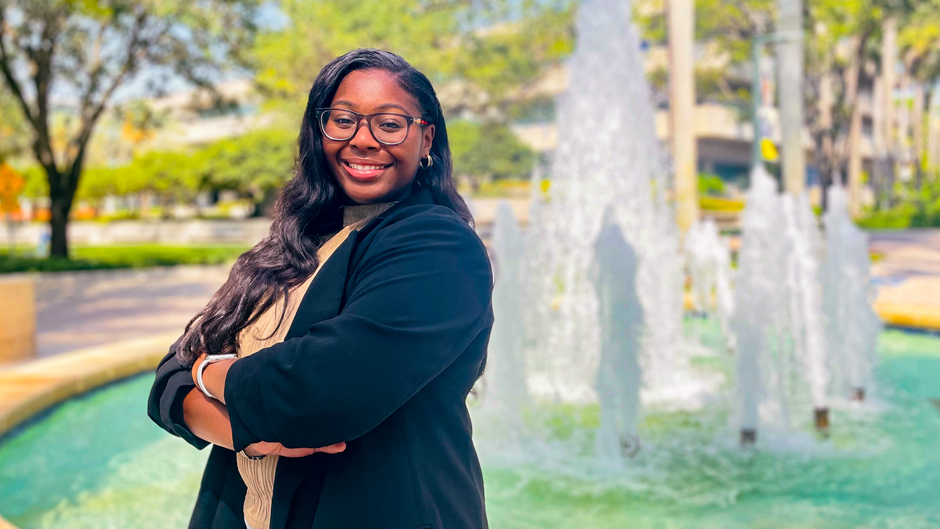It was at the start of her sophomore year at the University of Miami when Peyton Hodges decided that it was time to make a change and get involved in campus life. Hodges was 17 years old when she moved from her small hometown in Connecticut to begin her first year at the University, and she remembers how hard it was to get settled and find her path.
“I was very homesick,” said Hodges, a pre-med student who majored in psychology and chemistry with a minor in health management and policy. “I come from a large family—three sisters, two brothers, and a lot of uncles, aunts, and cousins—and I was contemplating whether or not to transfer to a university closer to home, but I decided to stay, and it was the best decision that I ever made.”
Hodges found herself settling into campus life and focusing on her courses—then the pandemic hit, and Hodges went home to finish her classes virtually.
“Everything was up in the air because of COVID-19,” recalled Hodges. “My family wasn’t sure if I should return to campus, but I wanted to come back. That’s when it all began to change for me, and I knew that I wanted to be more active on campus during my sophomore and junior years.”
From her role as a resident assistant for campus housing to joining the Student Government executive board, Hodges’ intentions to get involved and create new experiences at the U began to take shape. She joined the Category 5 spirit programming board as football co-chair, responsible for organizing football watch parties when students were unable to see the games live at Hard Rock Stadium. She also joined the University’s Homecoming Executive Committee and the United Black Students and Minority Women in Medicine organizations, where she now serves as president.
“These experiences truly opened the door for me,” said Hodges. “I met new people and built up my confidence. My involvement with the Minority Women in Medicine also gave me the opportunity to talk about my experiences without judgment in a shared space with others.”
Hodges not only found support in the connections she made with fellow students on campus but with faculty members as well. “One of my mentors is Dr. Leslie Knecht. I registered for a few of her classes, one being organic chemistry. And she helped me tremendously—both inside and outside of the classroom,” said Hodges.
“Peyton embraced challenges head-on in my courses and had an unparalleled enthusiasm for learning,” said Knecht, a lecturer in the Department of Chemistry. “Beyond exemplifying academic excellence, she has also shown empathy and gratitude to her peers as a resident assistant and to the faculty and staff she interacts with. I am proud that Peyton will represent the U as an alumna and am confident she will go on to do amazing things.”
If there is one piece of advice Hodges would like to share with incoming students, it’s “don’t be afraid to get involved. The connections you make are lifelong,” she said. “Even if you’re shy, don’t give up. The possibilities are endless here at UM. There are so many things to do and so many organizations to join. There is truly something for everyone.”

